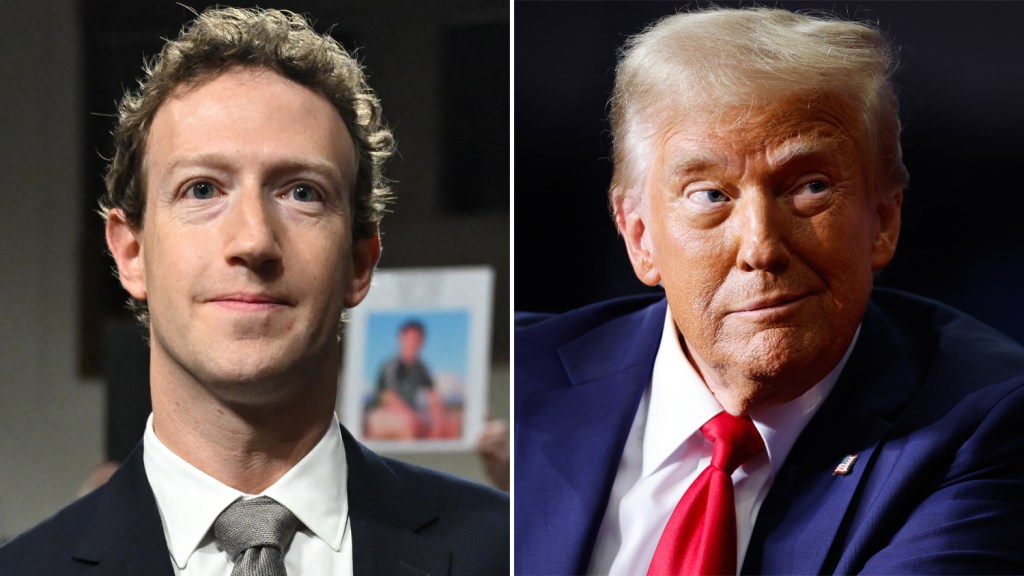Meta’s $25 Million Settlement: Unpacking the Trump Account Suspension Saga
In a notable development within the realm of social media governance, Meta Platforms has reached a substantial $25 million settlement concerning the suspension of former President Donald Trump’s account. This landmark agreement not only addresses the immediate financial implications but also casts a spotlight on the broader issues of free speech, content moderation, and the evolving role of social media platforms in our society. As we delve deeper into the intricacies of this case, we will explore its ramifications for future governance on social media and the essential balance between free expression and responsible content management.
The Background of the Suspension
Donald Trump’s account was suspended in January 2021 following the Capitol riots, a decision that sparked widespread debate. Critics argued that the suspension was an infringement on free speech, while supporters contended that it was a necessary action to prevent the spread of misinformation and incitement to violence. Meta, like other social media platforms, found itself in a precarious position, tasked with regulating content in a politically charged environment.
The decision to suspend Trump’s account was unprecedented. Trump had utilized social media as a primary communication tool, and his absence was felt keenly, both by his supporters and detractors. The ensuing uproar raised critical questions about the power of social media companies: who gets to decide what constitutes acceptable discourse? And how do these platforms navigate the often murky waters of political speech?
The Settlement: What It Means
The $25 million settlement marks a significant moment in this saga. While the financial terms suggest a resolution to potential legal disputes, the implications extend far beyond monetary compensation. Here are some key aspects to consider:
- Legal Precedents: This settlement may set a precedent for how other cases involving suspended accounts are handled in the future, particularly those involving public figures.
- Policy Reevaluation: Meta might need to revisit its content moderation policies to better align with public expectations and legal frameworks.
- Public Trust: The settlement could either enhance or diminish public trust in Meta’s commitment to fair governance, depending on how it is perceived by users.
The Broader Implications for Social Media Governance
As social media platforms like Meta continue to play an influential role in public discourse, the implications of this case resonate on multiple levels. Here are a few considerations:
1. The Role of Content Moderation
Content moderation remains one of the most challenging aspects of social media management. As evidenced by the Trump account suspension, the stakes are high. Platforms must balance the need to prevent harmful content with the obligation to uphold free speech. This case underscores the necessity for transparent moderation policies that are consistently applied, particularly when dealing with high-profile individuals.
2. Free Speech vs. Misinformation
One of the central debates arising from this settlement is the tension between free speech and the spread of misinformation. Social media platforms are often seen as the modern public square, yet they operate under private rules. This duality raises questions about the extent to which these platforms can impose their standards without infringing on users’ rights to express opinions, even when those opinions are controversial.
3. The Influence of Public Opinion
Public sentiment plays a crucial role in shaping the policies of social media companies. The backlash against Trump’s suspension highlighted the divided opinions among the public. Moving forward, Meta and similar platforms will likely need to consider the perspectives of their user base when crafting policies. Engaging with users and incorporating feedback could lead to more equitable and accepted governance strategies.
Future of Content Moderation and Policy Changes
In the wake of the settlement, it is vital for Meta to evaluate its content moderation strategies. Here are some potential actions the company might undertake:
- Establishing Clear Guidelines: Creating a more comprehensive and transparent set of guidelines for content moderation could help users understand what is permissible and what is not.
- Enhanced User Engagement: Implementing user feedback mechanisms could provide insights into how moderation decisions are viewed by the community, fostering a sense of shared governance.
- Regular Policy Reviews: Establishing a routine for reviewing and updating policies in response to emerging issues can ensure that the platform remains relevant and responsive to user needs.
The Path Forward: Balancing Act
As Meta navigates the aftermath of the $25 million settlement, it faces a critical juncture. The company must find a balance between maintaining user trust, advocating for free speech, and ensuring a safe online environment. The lessons learned from this saga could serve as a blueprint for other social media platforms grappling with similar challenges.
In conclusion, the $25 million settlement regarding Donald Trump’s suspended account is more than just a financial agreement; it is a pivotal moment in the ongoing discourse surrounding social media governance. The implications of this case have the potential to shape future policies, influence public opinion, and redefine the responsibilities of social media platforms in the digital age. As users, policymakers, and tech companies continue to engage in this debate, it remains imperative that we strive for a social media landscape that promotes healthy discourse while safeguarding the principles of free expression.
See more Future Tech Daily

